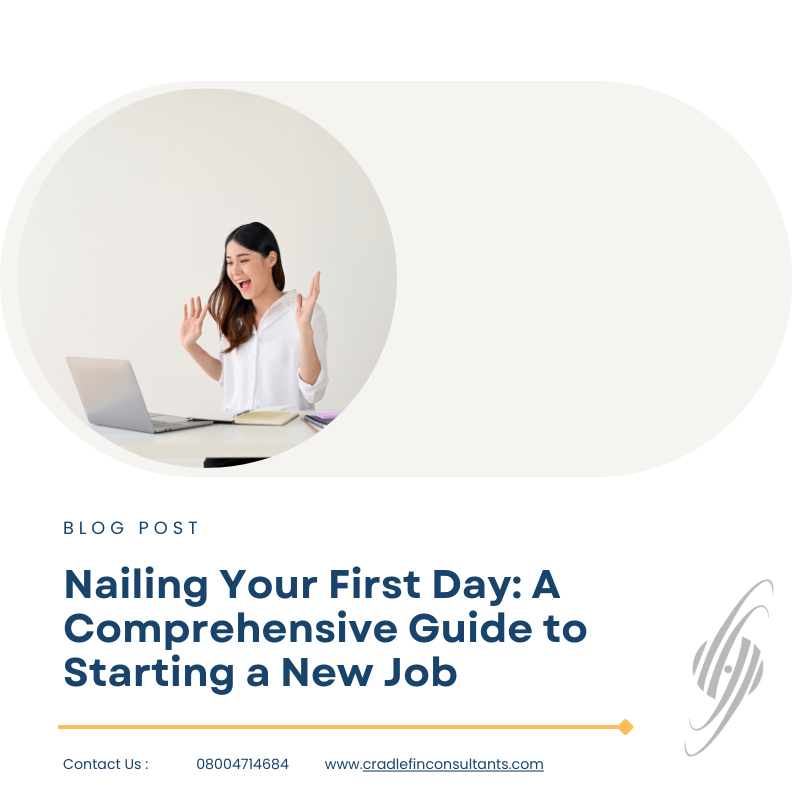Introduction to working culture in the UK
Understanding and adapting to the working culture in the United Kingdom is crucial for foreigners looking to thrive in the country’s professional landscape. The country’s rich history and diverse workforce, has a unique set of characteristics and norms that define its working culture. This article aims to provide valuable insights into the UK working culture and offer strategies for foreign workers to successfully navigate and integrate into this environment. By recognising the key cultural differences, challenges, and opportunities, individuals can enhance their professional experience and build meaningful relationships in the workplace.
Understanding and Adapting to Working Culture in the UK as a Foreigner
1. Introduction to Working Culture
1.1 Overview of the Working Culture: The working culture in the UK is known for its professionalism, efficiency, and respect for rules and procedures. British businesses value punctuality, teamwork, and a strong work ethic. Understanding and adapting to this culture is crucial for foreign workers to succeed in their professional endeavours.
1.2 Importance of Understanding and Adapting to the Working Culture: Adapting to the working culture not only helps foreign workers integrate better into their new work environment but also improves their chances of success. By embracing the norms and values of the UK working culture, foreign workers can build stronger relationships, avoid misunderstandings, and enhance their professional growth.
2. Key Characteristics of the UK Working Culture
2.1 Emphasis on Punctuality and Time Management: The British take punctuality seriously. Arriving late to meetings or submitting work past deadlines is generally frowned upon. Being punctual and respecting others’ time demonstrates professionalism and reliability in the working culture.
2.2 Hierarchical Structure and Respect for Authority: The working culture is hierarchical, with a clear chain of command. Respect for authority, especially towards managers and supervisors, is expected. Adapting to this structure involves following instructions, seeking guidance when needed, and showing respect for the decision-making process.
2.3 Importance of Teamwork and Collaboration: Teamwork and collaboration are highly valued. Working well with colleagues, communicating effectively, and contributing to group projects are essential skills. Embracing a cooperative mindset and actively participating in team activities will contribute to a positive work environment.
2.4 Work-Life Balance Considerations: Maintaining a healthy work-life balance is a significant aspect of the working culture. While hard work is appreciated, it is equally important to prioritise personal well-being. Finding the right balance between work and leisure time helps maintain productivity and prevents burnout.
3. Cultural Differences and Challenges Faced by Foreign Workers
3.1 Language Barriers and Communication Styles: For foreign workers, language barriers and different communication styles can pose challenges. Understanding British English idioms and adapting to the direct communication approach common in the UK can help overcome these hurdles. Taking the initiative to improve language skills and seeking clarification when needed is essential.
3.2 Understanding and Adapting to Different Workplace Norms: Foreign workers may encounter workplace norms that differ from their own cultural expectations. This could include differences in dress code, behaviour, or social customs. By observing and adapting to these norms, foreign workers can ensure they are fitting into the work environment more seamlessly.
3.3 Navigating Cultural Nuances and Unwritten Rules: The working culture has its fair share of unwritten rules and subtle cultural nuances. These can be challenging for foreign workers to navigate. By observing and learning from colleagues, asking for guidance, and being open to feedback, foreign workers can gradually adapt and understand these intricacies.

4. Strategies for Adapting to the Working Culture
4.1 Cultural Immersion and Learning Opportunities: To better understand and adapt to the working culture, foreign workers can immerse themselves in the local culture. Engaging in social activities, attending networking events, and participating in cultural programmes provide opportunities to learn and develop relationships with colleagues.
4.2 Seeking Guidance and Mentorship: Seeking guidance from experienced colleagues or mentors can be invaluable for foreign workers. They can provide insights into the working culture, offer advice on how to navigate challenges, and help foreign workers integrate better into the workplace.
4.3 Flexibility and Open-Mindedness: Flexibility and open-mindedness are key attributes for adapting to any new working culture. Embracing change, being receptive to feedback, and showing a willingness to learn and grow will not only help foreign workers succeed but also foster positive relationships with colleagues.
By understanding and adapting to the working culture, foreign workers can thrive in their professional lives and forge lasting connections in their new work environment. So, embrace the culture, don’t forget to bring an umbrella, and get ready to enjoy a cup of tea or two. Cheers! Navigating cultural differences in the workplace can be a daunting task, especially for foreigners working in a new country like the UK. Understanding and adapting to the working culture in the UK is essential for building successful relationships, maintaining a healthy work-life balance, and thriving in your professional environment.
5. Building relationships and effective communication in the workplace
5.1 Establishing rapport and trust with colleagues: Building relationships with your colleagues is crucial for a positive work experience. The British people value professionalism and politeness. Start by introducing yourself to your team members and engaging in small talk to establish rapport. Be attentive and show interest in your colleagues’ lives outside of work. Grabbing a cup of tea or joining them for lunch can go a long way in developing trust and forming meaningful connections.
5.2 Effective verbal and non-verbal communication techniques: Clear communication is the foundation of successful collaboration. When communicating, it’s important to be concise and to the point. Avoid using excessive jargon or overly formal language. Maintain eye contact and use appropriate body language to convey your message effectively. Remember, the British have a penchant for dry humour, so don’t be afraid to inject some light-hearted banter into your conversations.
5.3 Understanding and adapting to different communication styles: The UK is a diverse country, and working with people from various cultural backgrounds is common. It’s essential to be aware of and adapt to different communication styles. Some colleagues may prefer direct and assertive communication, while others may value a more indirect and diplomatic approach. Take the time to understand your colleagues’ communication preferences and adjust your style accordingly to ensure effective collaboration.
6. Work-life balance and time management
6.1 Balancing work commitments and personal life: Maintaining a healthy work-life balance is highly valued in the UK. While it’s important to be dedicated to your job, it’s equally important to prioritise your personal well-being. Strive to set boundaries between your work and personal life. Avoid working excessively long hours and make time for activities that bring you joy and relaxation outside of work. Remember, a rested and rejuvenated employee is a more productive one!
6.2 Efficient time management strategies: Time management is key to being productive in the UK workplace. Make use of tools such as calendars and to-do lists to prioritise tasks and stay organised. Break your work into smaller, manageable chunks to avoid feeling overwhelmed. Avoid procrastination and try to tackle challenging tasks first when your energy levels are highest. Remember, time is a precious resource, so use it wisely and efficiently.
6.3 Embracing leisure activities and cultural experiences: The UK is known for its rich history and diverse culture. Embrace the opportunity to experience leisure activities and immerse yourself in the local culture. Take advantage of your weekends and time off to explore museums, visit landmarks, or enjoy the vibrant nightlife. Not only will this enhance your overall experience in the UK, but it will also provide you with interesting topics of conversation with your colleagues.
7. Professional etiquette and workplace norms
7.1 Dress code and appearance: In the UK, professional attire leans towards a more formal style. In most workplaces, it’s advisable to dress smartly, unless there is a specific dress code stating otherwise. Men typically wear suits or smart trousers with a button-down shirt, while women opt for smart dresses or business suits. Always ensure your clothes are clean, well-maintained, and appropriate for the office environment.
7.2 Business etiquette and formalities: British business etiquette emphasises punctuality, respect, and politeness. Arriving on time for meetings and appointments is essential to show respect for other people’s time. When entering a meeting, greet everyone with a firm handshake and maintain eye contact. During discussions, allow others to speak and avoid interrupting. Remember to express gratitude and appreciation when someone helps or supports you.
7.3 Understanding office hierarchy and protocol: Most workplaces have a hierarchical structure, with clear lines of authority. It’s important to understand and respect the office hierarchy. Address colleagues with appropriate titles unless given permission to use their first names. Seniority and experience are highly regarded, so deference to those in higher positions is expected. However, the British workplace also values open communication and encourages contributions from all team members, regardless of rank.

8. Resources and support for foreigners navigating the working culture
8.1 Networking opportunities and professional organisations: Building a professional network is crucial for career growth. Seek out networking opportunities and events in your industry. Join professional organisations related to your field to connect with like-minded individuals and gain insights into the working culture. These networks can provide valuable support, advice, and potential job opportunities.
8.2 Language and cultural training: If English is not your first language, consider investing in language and cultural training to enhance your communication skills and understanding of the culture. There are numerous language schools and training centres that offer courses specifically tailored for foreigners. These courses can help you feel more confident and comfortable in your professional interactions.
Navigating the working culture as a foreigner may have its challenges, but with a proactive and open-minded approach, you can thrive in your new environment. Take the time to understand and adapt to the nuances of British working culture, while also bringing your unique perspective and experiences to the table. Adapting to the working culture as a foreigner may seem daunting at first, but with awareness, flexibility, and a willingness to learn, it is entirely possible to thrive in this diverse and dynamic environment. By embracing the key characteristics of the UK working culture, effectively communicating with colleagues, and prioritising work-life balance, foreign workers can forge successful careers and contribute to the vibrant professional landscape of the United Kingdom. Remember, resources and support are available to help navigate the intricacies of the UK working culture, making the transition smoother and more rewarding. With determination and adaptability, foreigners can truly excel in their professional pursuits in the UK.
FAQ
1. What are some common challenges faced by foreigners in adapting to the working culture? Foreigners may encounter challenges such as language barriers, differences in communication styles, unfamiliar workplace norms, and adjusting to the UK’s emphasis on punctuality and time management.
2. How can I effectively communicate and build relationships with colleagues in the workplace? To communicate effectively, it is important to listen actively, be respectful, and adapt to different communication styles. Building relationships can be achieved by engaging in team activities, networking, and showing genuine interest in colleagues’ professional and personal lives.
3. What resources are available to help foreigners navigate the working culture? There are various resources and support systems available, such as professional organisations, networking events, mentorship programmes, and cultural immersion opportunities. These avenues can provide guidance, insights, and connections to help foreigners adjust and succeed in the UK working culture.






